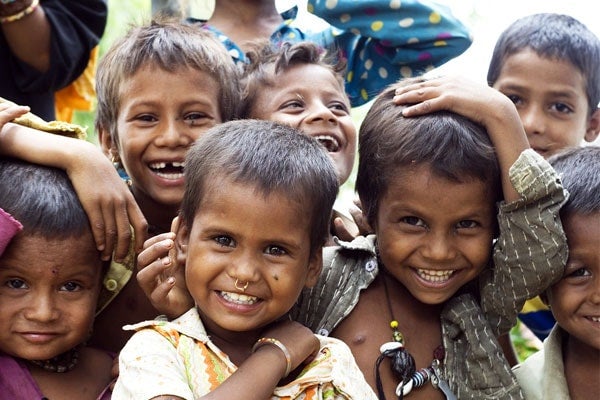
Education for all: U of T hosts global conference
Published: March 7, 2014
How do you ensure child labourers get an education? What are the costs and benefits of privatizing education? Can technology help Syrian refugee children?
These and other issues will be debated by thousands of delegates from around the world at the annual Comparative & International Education Society conference. Hosted by the University of Toronto's Ontario Institute for Studies in Education (OISE), the event draws attendees from academia, government ministries of education, international organizations such as UNESCO, the World Bank and Unicef, and charities such as CARE and World Vision.
President Meric Gertler and Ontario minister of education Liz Sandals will introduce the conference, which takes place at the Toronto Sheraton March 11 to 15. One of the key organizers is OISE's associate dean, research and CIES President-Elect Karen Mundy. U of T News caught up with her while she was finalizing preparations for the conference.
Why is the CIES conference important?
This conference brings the world to Canada and gives us a chance to highlight the significant contributions to the field of educational research and educational policy made by the University of Toronto.
Any particular panels or presentations that excite you?
With 2000 presentations, there's so much to get excited about. Two talks I am really looking forward to are, first – from OISE – Professor Jim Cummins will be giving a keynote based on his lifelong research on second language and literacy development. The second is the keynote address from Indian activist and educator Rukmini Banerji. Rukmini leads the Indian NGO Pratham, which pioneered the use of volunteer based campaigns to track whether kids are learning to read and write in Indian primary schools. Their shocking findings are that large numbers of kids go to school without learning to read.
How has OISE contributed to global education?
OISE is Canada's education brain trust, and we are one of the most internationally focused of any faculty of education in the world. Our researchers not only conduct research in every region of the world, they have built relationships with governments, foundations and civil society organizations wherever they work. At this conference, for example, OISE faculty will be meeting with representatives from the Aga Khan Foundation to discuss collaborative work in the areas of school system reform, and with the Government of Ethiopia and Unicef to discuss early childhood education programs.
Our faculty and students will be presenting on higher education in China and Brazil, on education in conflict-affected states, on gender equality in African education, on equity and school improvement in Chile, and on a multitude of other topics, including international assessments and the challenges of making global comparisons. Many of the organizations coming to the conference are key partners with OISE and many would also like to learn from Ontario’s education system.
What particular themes in international education interest you?
My own research has been focused on educational reform in east Africa, on the evolving role of global education policy actors, such as the World Bank, Unicef, Unesco, and the rising tide of trans-national non state and civil society actors. I have a driving interest in understanding the limits and possibilities for global action around the right to education. Recently I've been especially interested in education for children in conflict-affected states, and in the heated policy debates emerging about the private provision of schooling – two of my recent books feature these issues.
The theme of this conference is: re-envisioning education for all. Why is this important?
The term "education for all" represents much more than the challenge of getting every child to school. It also engages deeper questions about what equity at every level of education means. All societies need to think carefully about this question. When CIES last gathered to discuss "education for all", the Millennium Development Declaration had set out a global commitment to ensuring that all children, everywhere, receive a complete primary education of a good quality. A lot was achieved: after more than a decade, the number of out-of-school children worldwide has fallen from over 100 million to fewer than 60 million. But that isn't good enough!
Final thoughts before the conference?
I'd really encourage University of Toronto faculty and students to visit CIES down at the Sheraton this week. Many folks on our campus don't realize what a strong international footprint OISE has in international educational research and policy – nor do they understand the way scholarship from economics, sociology, psychology and political science comes together with policy making under the banner of "comparative education". The CIES conference is a unique opportunity for all of us to see this field in action.
Terry Lavender is a writer with University Relations at the University of Toronto.



